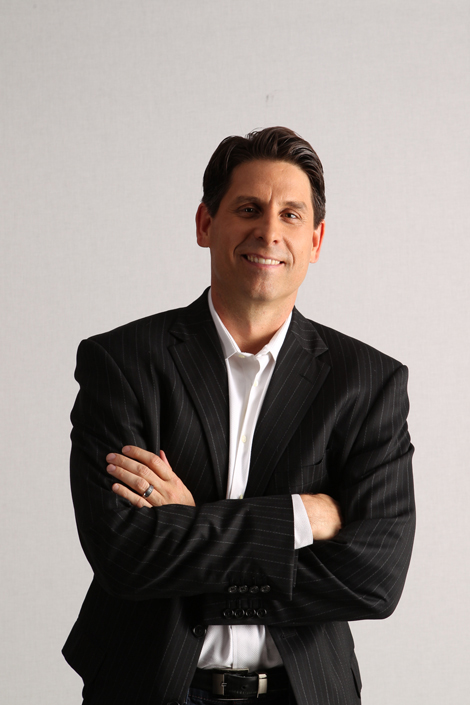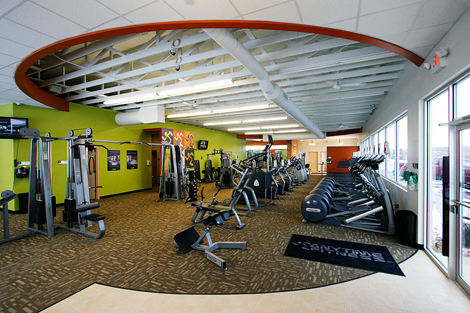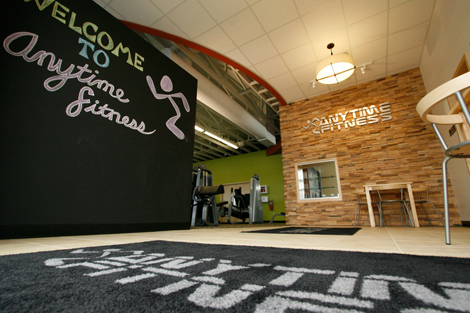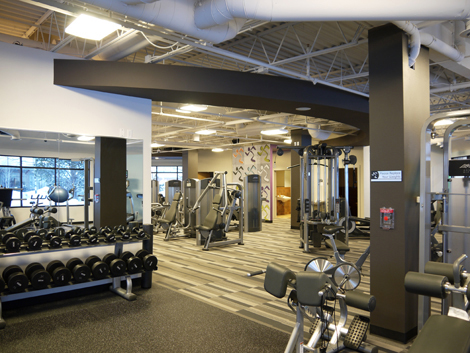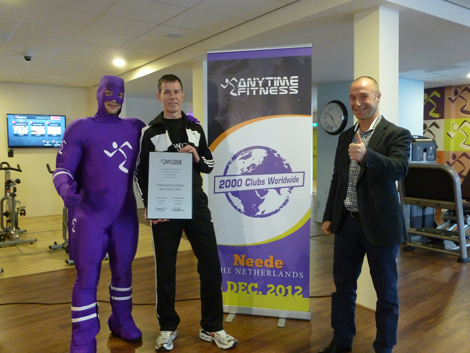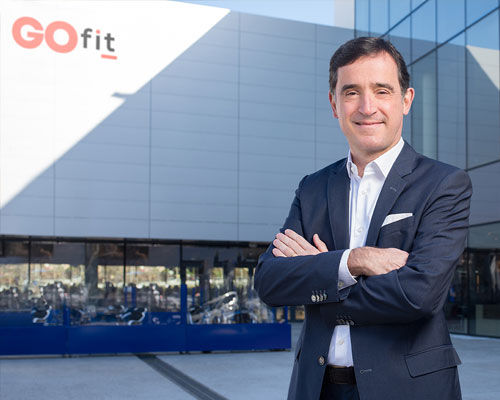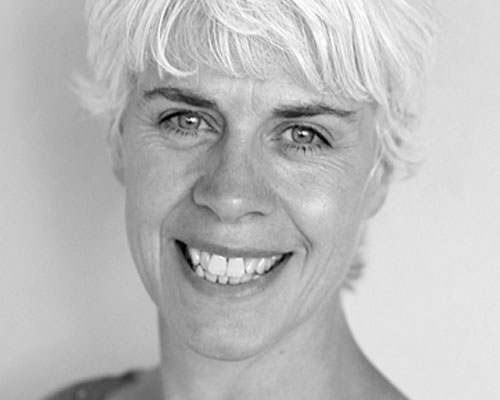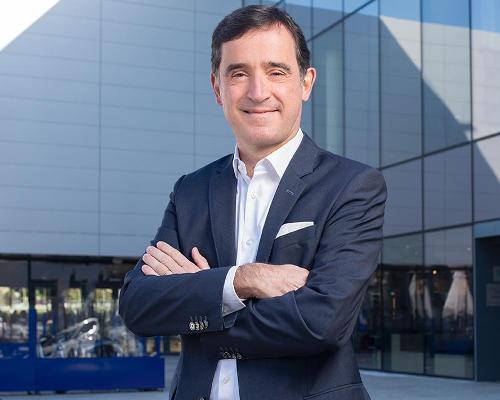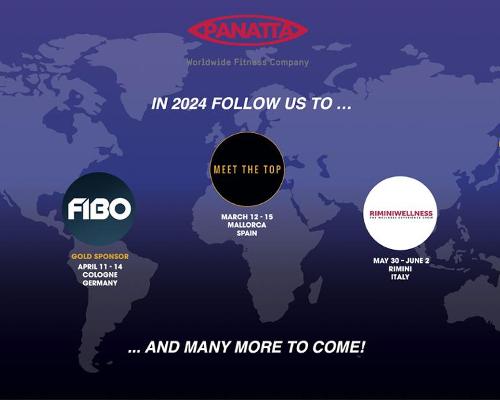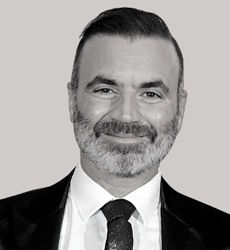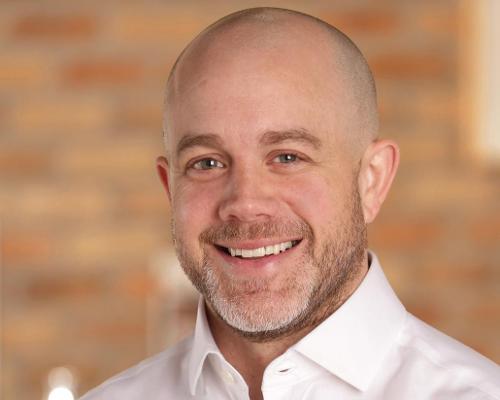features
Interview: Chuck Runyon
The CEO and co-founder of Anytime Fitness, the world’s largest and fastest-growing co-ed fitness franchise, talks to Kate Cracknell about incentivising healthy habits and expansion into new sectors
“Money plays an important role in behaviour change,” states Chuck Runyon, CEO and co-founder of fitness franchise Anytime Fitness.
He’s talking about the initiative in Anytime’s own backyard of Minnesota, US – a scheme known as Fit Minnesota. Set up five months ago, the project has seen Anytime teaming up with Snap Fitness, the YMCAs and Life Time Fitness “to find a way to get consumers healthier”. Runyon explains: “We can’t ignore the stats on how obesity, or even just overweight, is dramatically impacting our health insurance costs. It threatens to bankrupt the US.”
Incentivising health
He continues: “In recent years, the World Health Organization said we didn’t have an obesity problem, but rather a physical inactivity problem. With the Fit Minnesota initiative, we’re working to get the State of Minnesota to be a nationwide – and hopefully a global – leader in financially incentivising individuals or employers to be healthy, to get off their sofas and join a health club or just get their families active. And we’ve seen that money changes behaviour far faster than education ever could.
“In the State of Minnesota, our four largest health insurance providers now subsidise gym memberships. They reimburse people based on usage: those using a Minnesota health club 12 times or more a month receive US$20 a month to offset against their membership fees.
“Now I’m going to give you some remarkable stats. The people on that programme use a health club four times more than those not on a reimbursement scheme. They also renew their membership at a rate of 93 per cent, whereas those not receiving reimbursement renew at a rate of 60 per cent. So a lousy US$20 a month really does change behaviour and gets people to be more active.
“We believe that, if we can provide taxable incentives for an individual to work out – such as a tax or income tax credit, for example – or for an employer to pay for their employees’ wellness using pre-tax dollars and not pass on any taxable consequences, it will stimulate physical activity and begin to reverse our obesity epidemic.
“What we’re working on in Minnesota right now is therefore to get legislation passed, an actual law, that gives tax incentives to either employers or individuals to be healthy. We’re hopeful we can get that passed in 2013. It will be specific to Minnesota for now – IHRSA’s been trying for many years to get this sort of legislation passed nationally, with no joy so far – but we hope it will then be like a domino effect, with other States following suit.
“As we go forward, I believe there will be a collision of health insurance, obesity, and employers’ and government intervention. I see more insurance companies getting involved in the reimbursement, I see government intervention in the shape of incentives for employers and employees, and I see the medical community moving towards a preventative approach, with doctors being paid based on the positive impact they have on getting their patients healthier.”
I mention the fact that, in the UK, GPs still aren’t incentivised through QOF to refer people into physical activity. “I think it’s insane that they literally can’t prescribe fitness when it’s proven that exercise is medicine in a variety of ways,” says Runyon. “But our industry shouldn’t stop trying. It’s frustrating that it hasn’t happened already, but as healthcare costs continue to escalate, change will happen. We just have to make sure our foot’s in the door to ensure we can take advantage of that.”
A new model
But let’s backtrack to tell the Anytime Fitness story – a story that has seen the franchise grow faster even than the likes of McDonalds.
Prior to launching Anytime in 2002, the company’s two co-founders – Runyon and Dave Mortensen – ran a marketing company in the fitness industry. They also acquired distressed assets – large format health clubs – into which they would invest, growing the membership and running the facility until the time was right to resell.
“When we were running the larger clubs, we realised that 90 per cent of members used the same 4,000sq ft on every visit: the cardio, resistance equipment, free weights… Fewer than 10 per cent used the swimming pools, racketball courts, daycare, smoothie bars. Although the clubs were profitable, most of the square footage was under-utilised.
“That’s where the idea for Anytime Fitness came about. We took everything that people liked the most – the CV, the weights – and put it in a much smaller format, in a more convenient location. We develop clubs in what we call ‘strip centres’ – a little run of shops in a local community. We also turned to technology to allow 24/7 access and minimise payroll, which as you know is the single largest expense for most clubs. We knew we’d lose a few members by not offering daycare or racketball, but we also knew that most people just wanted the convenience of a quick workout with cardio and resistance kit.”
The model proved a great success: Anytime opened its 100th club in 2005, its 1,000th in 2009, signed its millionth member in 2010 and then, in December 2012, opened its 2,000th club at a location in the Netherlands. So had they envisaged this sort of rapid expansion when they first set out? “We were very optimistic that this concept and this brand would do well, but 10 years ago did we predict that we’d have 2,000 clubs in 14 countries? Absolutely not,” admits Runyon.
Diverse markets
Thus far, the UK hasn’t contributed as much to that 2,000-club total as had originally been hoped. The stated goal at the time of the UK launch in 2010 was to have 50 sites by the end of 2012; the total by January 2013 was in fact 10 clubs. So what went wrong?
“There have been a variety of challenges,” says Runyon. “First and foremost, real estate is not as prevalent in the UK as it is in other countries, particularly here in the US where there’s a strip centre on almost every corner. Construction costs are also higher in the UK. In some countries, a landlord will actually pay for your build, whereas in the UK our franchisees have to come up with the money in order to do the construction themselves. There are still some issues with lending for a new business too.
“All that adds up to mean that people are a bit more conservative about entrepreneurial decisions in the UK than in other markets – there are headwinds that make things more difficult for them.
“I think those challenges are surmountable, but we’re going to need to work closely with our UK partners as well as some of the UK banks. We’ll have to be a bit more creative, putting loss pools in place – shared lending pools that we participate in along with the banks, so they’re more confident about lending to our franchisees.
“Every country is different and we’re not that disappointed – it’s not uncommon to put extra resources in place. And once the clubs open in the UK, they perform very well. So we’re still confident in the market – it’s just a matter of franchisee growth, but we will get there. It usually takes two or three years for most countries to get the momentum going.
“Australia has been the exception to that rule, and it’s exceeded all expectations. We have the right partnership group there and the climate is very ripe: it’s a health-minded country with more available space, lending, and landlords who are willing to put in money for construction.”
India, on the other hand, has proved tricky for Anytime to date, with an aborted attempt to enter the market a few years ago. “We just chose the wrong partner,” explains Runyon. “The individual we partner with in each market is the most important decision we make, and unfortunately we chose someone who wanted to make Anytime Fitness different in India. We realise the model might need to be slightly modified for some countries – in Qatar for example, we have a male-only club with more staff, valet parking and so on. It’s a larger, more upscale Anytime Fitness experience. But our original Indian partner wanted to go in an entirely different direction, and we just couldn’t find a way to align our visions.
“It was unfortunate, but we don’t think it caused any major harm to the brand in India, so we’re going to rebuild it and take our time. We have a new group in India now, which opened its first club in New Delhi in February.
“There are also a few other European countries we’re looking at, subject to the right partner coming on board, but I’d be reluctant to say which purely for competitive reasons. It takes eight to 12 months to open a club after a deal’s arranged, so I expect we’ll have clubs opening in some new markets in 2014.
“Overall, I think we can still continue to open 300 clubs globally each year for the next five years, so five years from now we should have 3,500 clubs, bringing perhaps another 10 to 14 new countries into the mix.”
New ventures
As if opening its 2,000th club wasn’t enough excitement for one year, in late 2012 Anytime also announced the acquisition of a non-fitness brand: a small, US-based waxing salon business called Waxing the City.
“We found four terrific partners who had four salons in Denver and one in Dallas. They had a track record, proof of concept, and they were looking to franchise. We opened our first Minnesota salon in December, with a second on its way, and we’ll begin franchising the concept in March. We don’t really need to tweak the concept at all – it’s just a case of putting the franchising infrastructure in place.
“To the consumer, there’s no direct connection between Anytime Fitness and Waxing the City, but of course we have two client bases: end customers and franchisees. And franchisees have immediate confidence in Waxing the City, because they know the best practices we have at Anytime Fitness will now be transferred to the new venture. We’ve already had a huge response from existing Anytime franchisees who want to open a Waxing the City salon.
“We’ll focus on the US to start off with and expect to sell close to 50 units in our first year – although most of them won’t open until 2014 – and should open another 50 or more in 2015. It’s early days, and I don’t think we’ll ever have 2,000 units in 10 years as we did with Anytime Fitness, but there’s no reason why, 10 years from now, we wouldn’t have hundreds, perhaps even over 1,000, Waxing the City salons.
“Really we see ourselves as a franchising business rather than a fitness business, and over the coming years we want to bring on more service-focused, boutique type brands in what we call the ‘personal improvement’ space – a space that might encompass hair removal, fitness, nutrition, massage… Our company vision statement is to improve people’s self-esteem, so we’ll be looking for brands that help people feel better about themselves and that improve their lives in some way.
“In fact, we already have a physiotherapy pilot going on, and there’s another project I’m really excited about which we’re hoping to roll out within the next calendar year. Some of the new ventures will be acquisitions; others will be start-ups. In the long run, we envision a collection of brands that improve the self-esteem of both the franchisees and the consumers, all of which share our best practices of franchising and consumer engagement.”
Fitness future
So if Runyon is stretching his wings beyond fitness, is that because he sees fitness as a sector of limited opportunity?
“Not at all – I’m very optimistic about the fitness industry. The next decade will be highly competitive, with low-cost and microgym operators continuing to expand, but at the same time there’ll be a lot of wind at our back thanks to the changes I already mentioned in the areas of medical insurance, government intervention and so on.
“So it won’t be easy, but I still think it will be an opportunistic decade and a decade of change. Technology will play a big role in that and is something we’re focusing on heavily in our offering: we have a new online offering designed to help our members make smart nutrition and activity choices throughout the entire week, not just when they’re at our clubs.
“But the need for good people skills won’t go away – quite the opposite. Even now, you can train with a virtual personal trainer, so why should health clubs even exist 10 years from now? The reason we will exist is because people will still need the compassion, coaching and education that we can offer.
“So when we develop technology, it’s not to replace a human being – it’s to make the human better, more able to have a deep, engaged relationship with members. Ten years from now, I believe it will be the brands and clubs that best deliver what I call ‘relational innovation’ that will succeed.”
